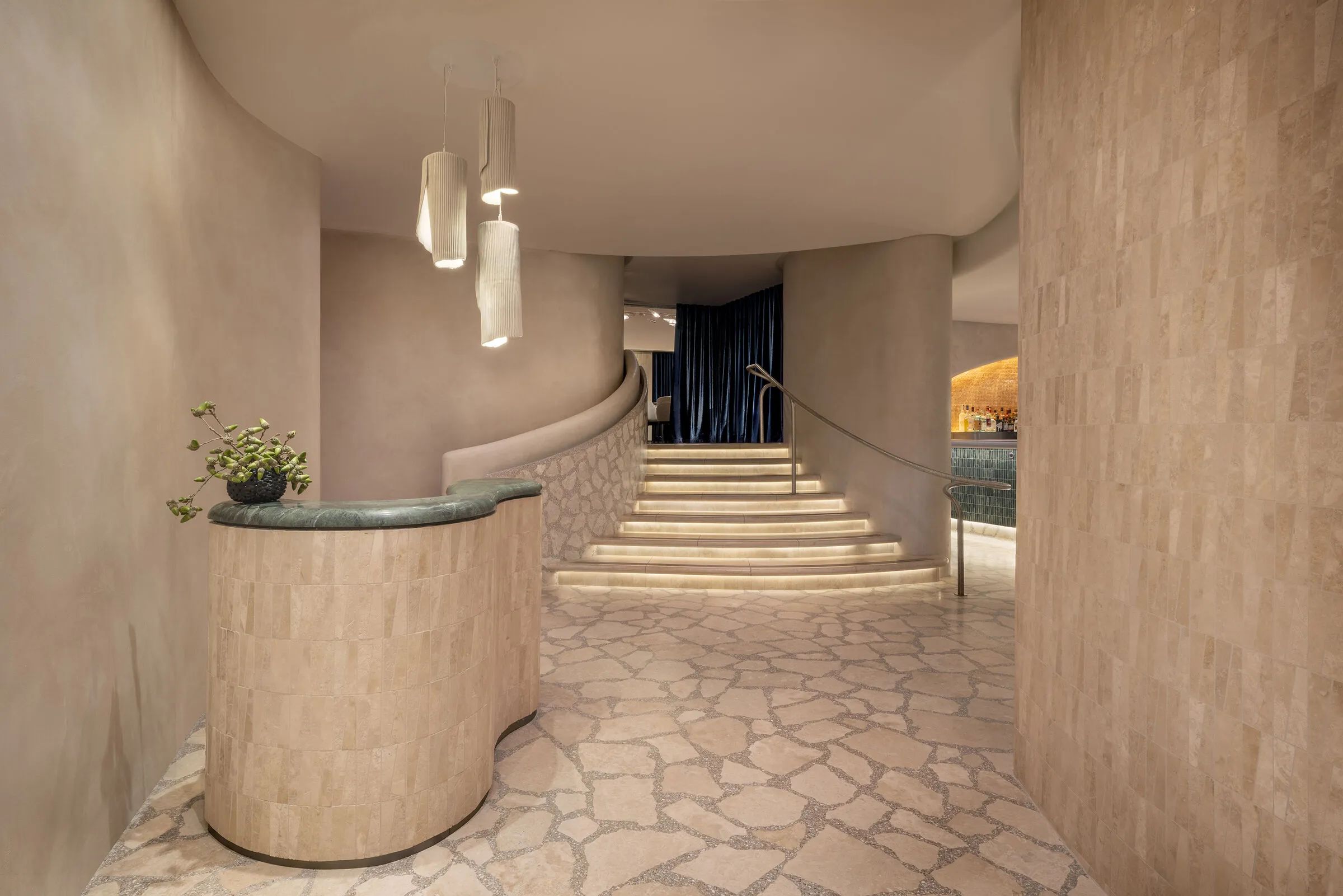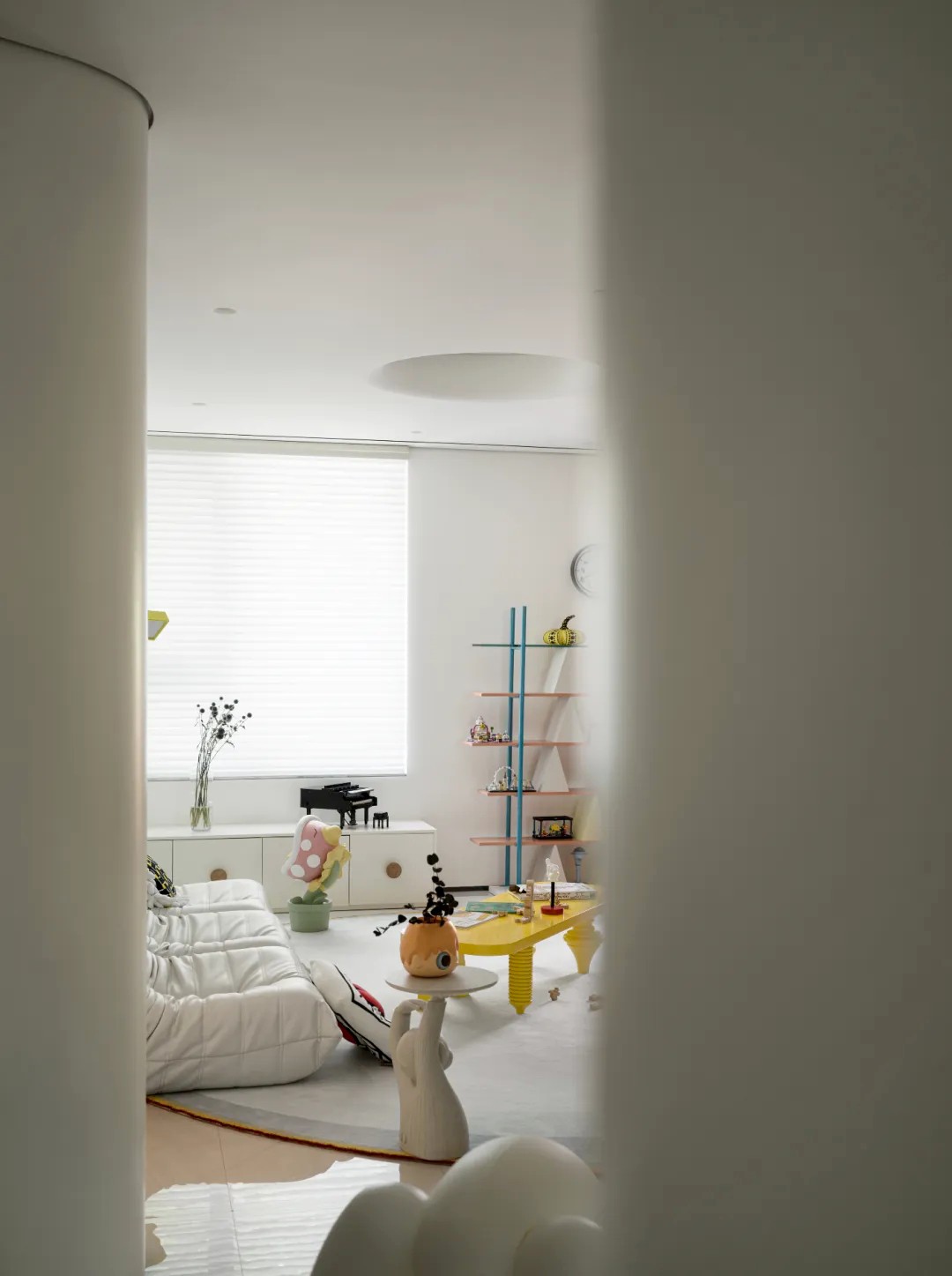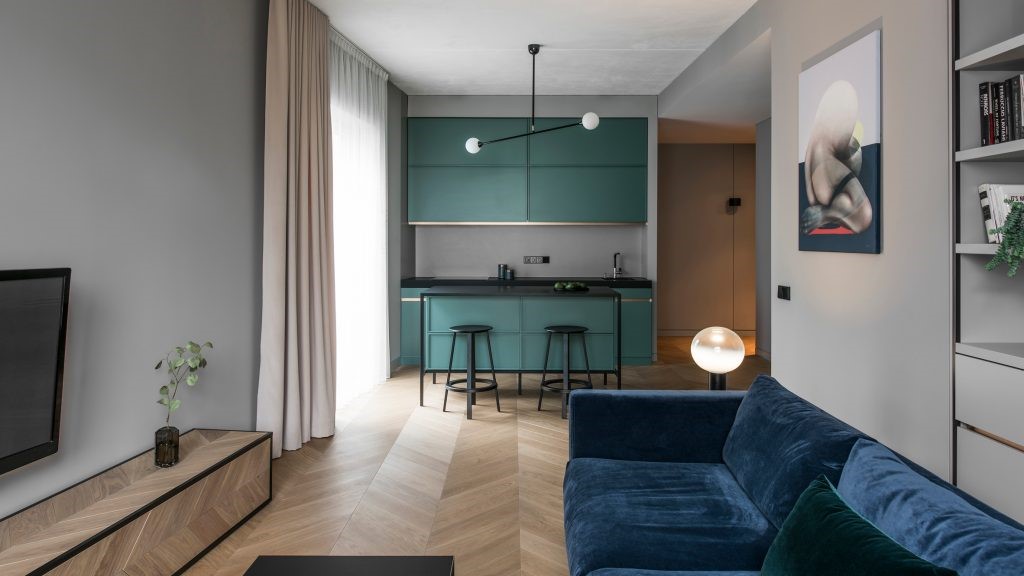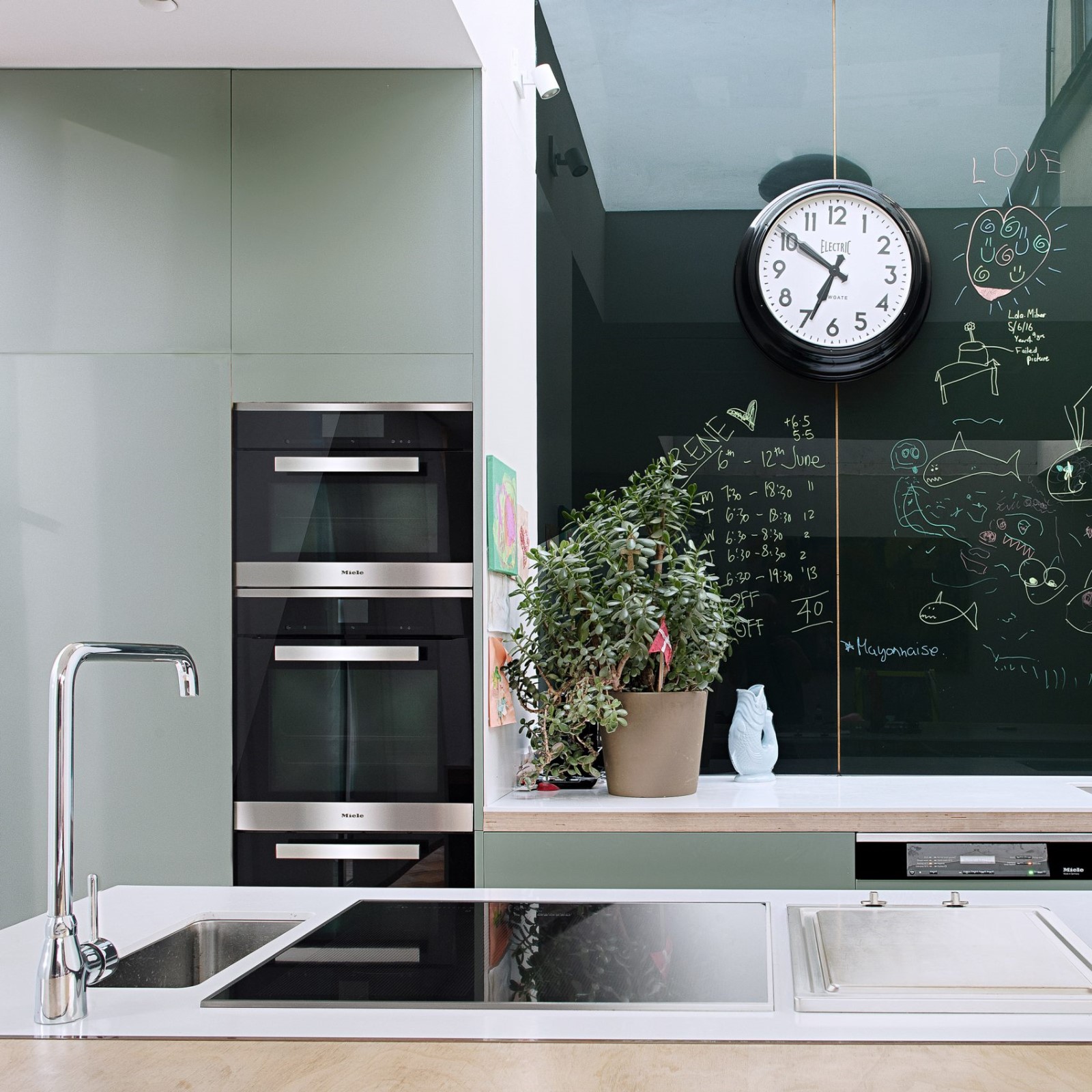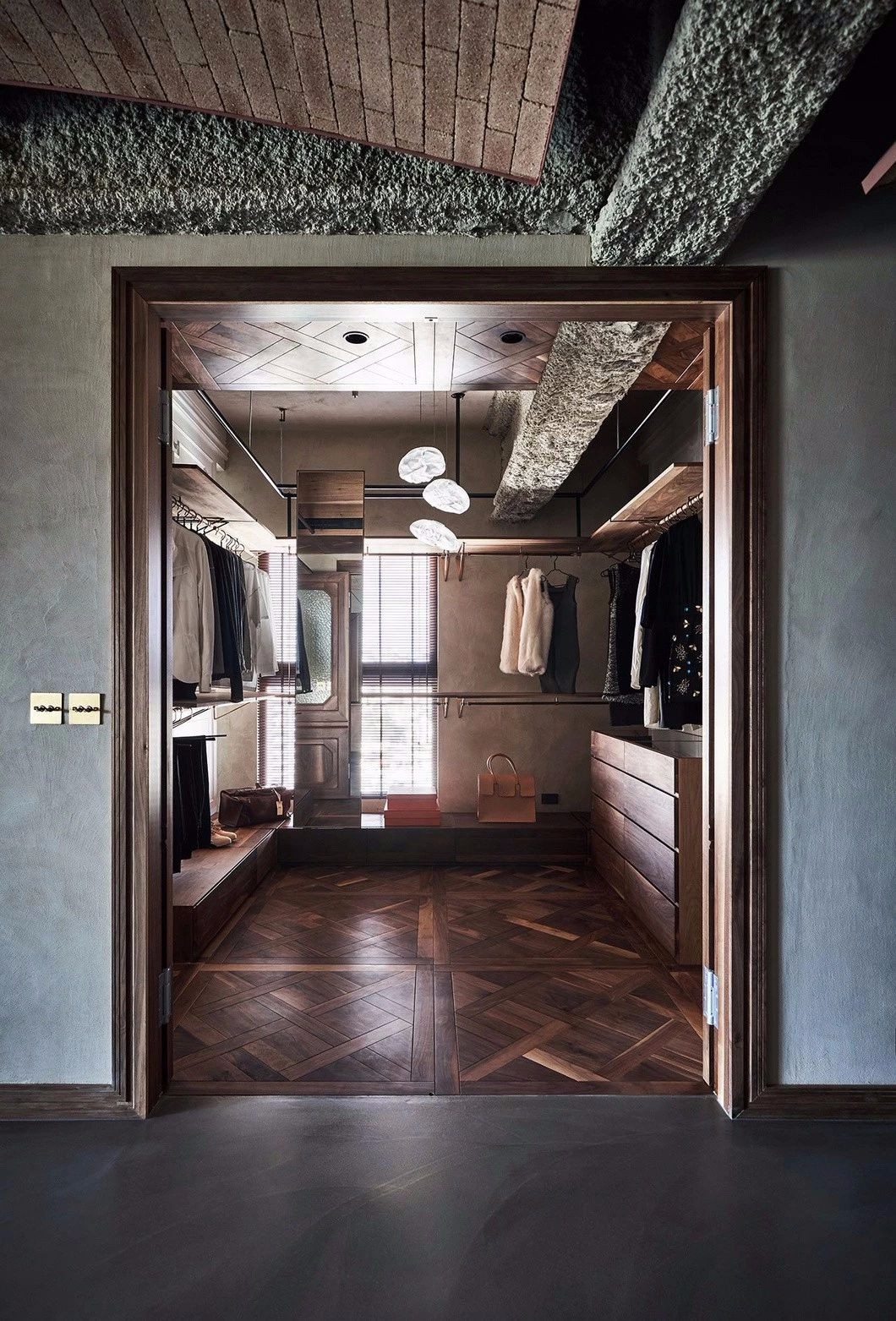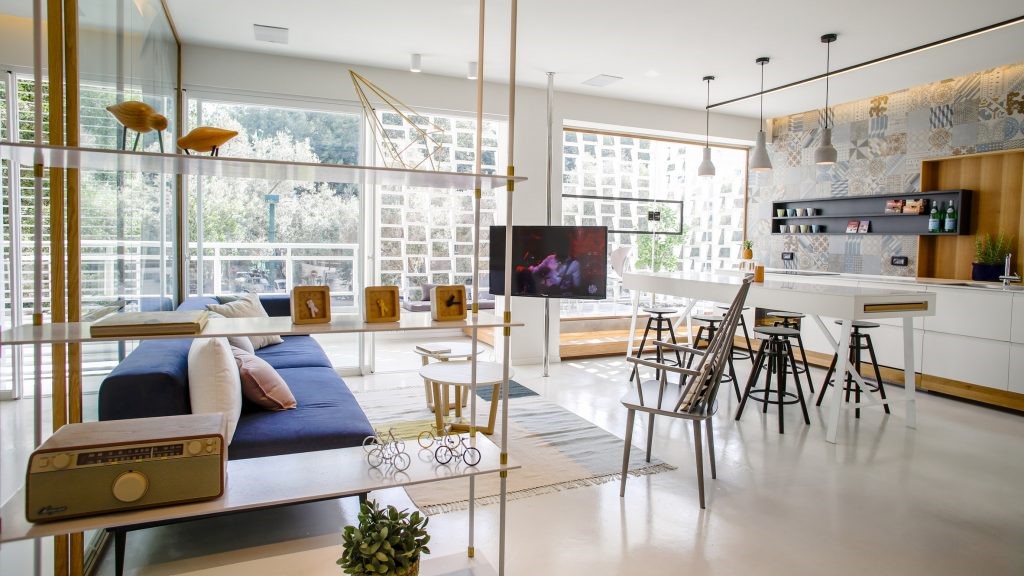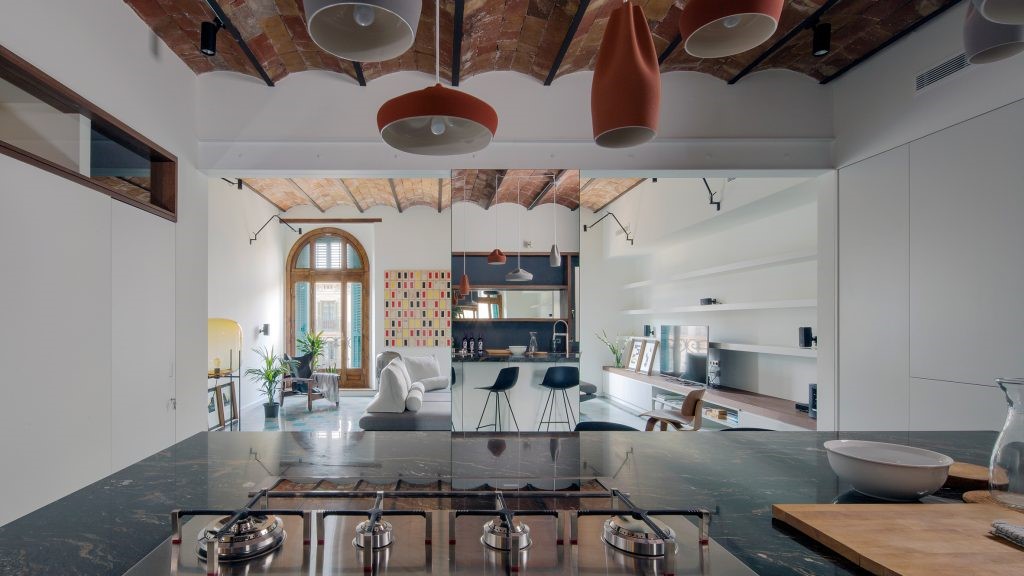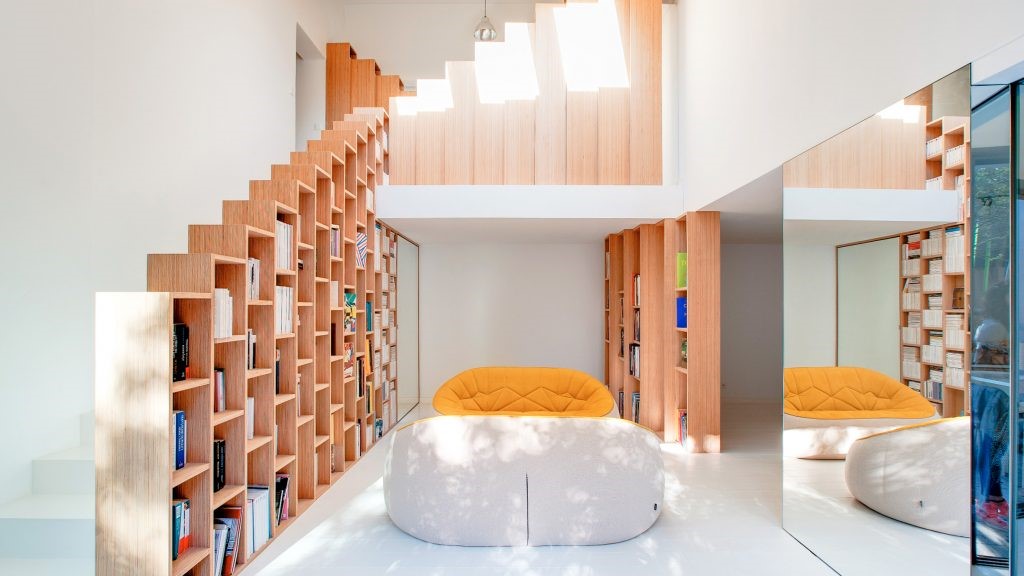梁筑设计丨有了光,就有了生活的诗意和乐趣! 首
2020-04-06 21:55
A Desired Home


家不仅仅是一套房子。它不是容纳琐碎日常的器皿,而更是情感与爱的交融之所。它像一个有温度的媒介,观照生活和成长的交互,记录空间里的故事,传达居者的个性和态度。
本案是关于家的改造空间。设计依照建筑式思维,整合室内相互穿插的界面,带来多维度的空间层次。人与空间的关系,得以在自由与平衡中达至共生。
Home is not merely a house or container of trivial things in daily life, but more a place that accommodates emotions and love. Its like an intimate medium, which witnesses the interweaving of daily life and growth, records stories occur in the space, and conveys the occupants personality and attitude.
This project is the transformation of a residence. Based on architectural thinking, the interior design enriches the layering of space by integrating interpenetrating surfaces, and realizes symbiosis between people and space in a free and balanced atmosphere.




自然光是业主们最期望的。如果能让阳光在室内进行变化和流动,让阳光能够停留或对话在多个空间,对他们来说是奢侈的。设计师却要把这奢侈的光给予业主,成全这份特别的温暖和期待。
Natural light is what the clients expect most for the home. Its a luxury to have sunlight change, stay and move throughout the entire space. As approaching the project, the design team tried the best to bring in the luxury daylight.








Deconstruction
Lina Bo Bardi丽娜·柏·巴蒂曾经说,“建筑是一种创造,是重新发明”。空间也是如此。设计师认为空间是由物体所创造,所以物体既是功能的需求也是空间层次的根本,它是存在空间动线环绕的一个载体。
Lina Bo Bardi once said that architecture was about creation and reinvention, so is space. The design team believes that the space is formed by objects, so objects are the basis of spatial functions and layering, as well as the carrier of circulation routes.


通过建筑的思维方式切入空间进行改造,开始把入户中轴上下方的楼板一直拆解到屋顶楼面,将原本的建筑一分为二,解构出前后相对的两个建筑载体。
Architectural thinking was applied to spatial transformation. The floor slabs and rooftop along the central axis of the foyer was dismantled, which divided the building into two parts: the front and rear blocks.






在入户上方所出现的建筑结构梁,是被保留下来的建筑原结构,见证了改造之后的价值重生,也成为空间场域的记忆线索。挑空处的镜面盒子与结构梁形成对照,模糊了新旧关系下的时间秩序。
A structural beam above the foyer was retained, which witnessed renewal of the space and carries its past memories. The box beside the beam features a mirror surface, which reflects it and seems to blur the time order under the relationship between the old and new.








Interplay of Light and Shadows
自然光是空间艺术的完美表达,也是人情绪感知的最佳抚慰。
Natural light expresses spatial art, and comforts the mind.








设计为原本的建筑制造出一个采光天井,让阳光直接进入到建筑本身最中心的每层挑空空间。
The designers created an atrium in the building, in order to let sunlight directly filter into the central hollow space on each floor.






通过穿插新的建筑体块,将原本只有两处光线可以影响到室内部分的情况下,又增添了一处阳光可以直接进入到房子最核心的部分。玻璃顶下方增加了一层穿孔铝板,赋予光线进入的过程另一种仪式感。
Originally, there were only two areas allowing daylight to enter the interior. Through adding a new architectural block, the design team created an additional core area that introduces light in. Besides, a layer of perforated aluminum panel is set under the glass roof, which creates a sense of formality as light falling down.








随着季节和经纬度的不同,阳光照射的角度也随之变化,光线在空间内部自然流动,推移时光的影像。斑驳光影化作无声的语言,让光和不同空间进行对话,人自然获得一种惊喜和满足,穿行其间也变得更加有趣。
The angles of sunlight vary throughout the day and year. Light freely moves within the space, generates dappled shadows, which interact with different areas and provide the occupants with surprising and playful experiences.


Interactive Connection
设计师在了解业主的需求和家人的生活习性后,在已有的空间和建筑条件,进一步提升了空间的开放与交互性。设计师对客厅和餐厅的顶面楼板也进行了裁剪,尽可能将室内公共部分的空间联系在一起。
After understanding the clients demands and living habits of the family, the designers further enhanced openness and interactive feature of the residence. Parts of the ceiling above the living room and dining area were cut, in order to connect the public areas as much as possible.




同时结合室内的功能和期望,根据原有建筑窗户的尺度,有序地增加了窗体,对室内进行光线的补充,让室内和室外之间有了更多的联系。
In addition, based on spatial functions and the clients expectations, the designers added some windows in an orderly manner, which perfectly coordinate with the scales of those already existed. These new window openings bring ample natural light into the space, and enhance interaction between the inside and outside.






无论在厨房还是餐厅或是其他公共区域,早晨就开始和阳光作伴,开放性的厨房和餐厅,给予家人更多精神上和言语上的交流。
The kitchen, dining room and other public areas are awash with daylight since morning. Those public areas are made open, helps to facilitating physical and spiritual interaction among family members.


卧室没有设置常规的独立衣帽间,而是把衣帽功能转换为卧室和浴室之间环绕动线的载体。在床区能够看到浴室的浴缸,空间视觉部分贯穿,不动声色地调节着情感。这新的空间兴奋点,也铺构出生活的可能性。
Conventional independent walk-in closet cannot be found in the bedroom. Instead, the wardrobe is set between the bedroom and bathroom, surrounded by the circulation routes. The bathtub can be seen from the bed area. Such a smooth sight line helps to adjust emotions, relax the mind, and bring more possibilities for life.
















Design Thinking
空间的布局皆依据有逻辑的原则,一是功能的方便,二是各种生活习惯都有合适的所在,三则是尽量让人与空间、空间与光照、光照与人之间产生关联。 建筑内部以及建筑外观亦结合室内设计的需求做了调整,目的就是为了将人的心理感受、视觉感受和想表达的情感从建筑就开始延续、建构;可以在最后的生活需求和呈现方式中,达到人与人之间的相互呼应、彼此加分。这是一种生活方式的诱导和改善。
The spatial layout is based on rational thinking, which takes into account functionality, the familys living habits, and interaction among people, space and daylight.
The architectural facade and interior structures were adjusted and transformed appropriately, so as to create visual experiences and affect the occupants emotions at architectural level firstly, and extend such experiences and emotions to the interior. The interior space is then presented in a way that well meets living needs and promotes interaction among family members. The overall design is capable of guiding and improving lifestyles.










“这个空间的语言会相对简单,一句话就表达了其中的内涵,偶尔夹谈着一些惊喜,那是一种耐读的、宁静的、有趣的;能够和内心产生对话又契合的整体感受。”设计师如是说。
The design languages are relatively simplistic. The space is serene, fun, durable and sometimes surprising, and it offers a holistic experience, which dialogues with the mind. the designer said.


△ 光和人类建筑的模拟图




△ 入室空间一分为二前期概念手绘效果








项目信息Project information
软装设计:梁筑设计事务所
设计团队:王心妍、周泽思、程萍萍、孙永芳
照明设计:Yaank向杨照明设计
项目地点:中国浙江省金华市浦江嘉毅望族壹号
项目面积:500平方米
完工时间:2019年12月
















